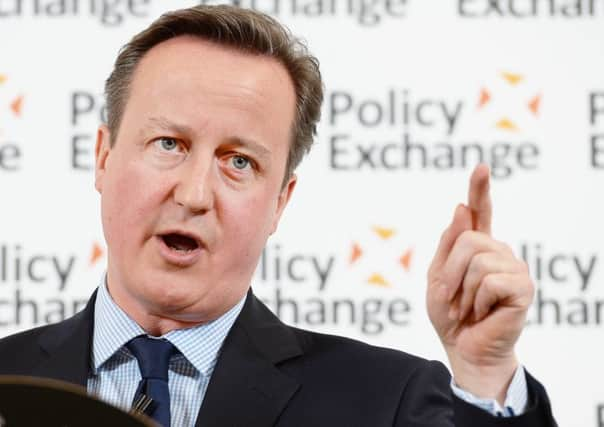Analysis: Cameron enjoys the benefits of self-imposed departure date


FOR American presidents, where two terms is the limit, it is expected that White House occupants will wait until they’ve won the country’s support for a second time before they suggest policies that might cost them an election or spend time on issues where there are few votes to be won.
Social security reform, gun control, Middle East peace - these are the area US presidents tackle when they know they will never have to run for anything ever again but want to be remembered for something.
Advertisement
Hide AdAdvertisement
Hide AdOn this side of the Atlantic, Prime Ministers have tended to keep fighting elections until the electorate decide to hand them their P45.
But David Cameron bucked that trend before the last election and surprised many, perhaps even himself, by making clear he would not seek a third term in office.
This declaration has posed him some difficulties, not least ensuring that every public utterance by Theresa May, George Osborne and Boris Johnson is analysed for signs of a bid for the Conservative Party leadership.
But today the Prime Minister got to enjoy one of the benefits, by making a speech on prison reform.
Advertisement
Hide AdAdvertisement
Hide AdHe could transform Britain’s prisons into institutions that transform all those that enter into reformed highly productive members of society and not win a single vote for it.
But a significant reduction in prison violence, drug use and reoffending rates would be a tangible legacy of his time in office.
And freed from the tyranny of the ballot box, his legacy is all that Mr Cameron has left to worry about.